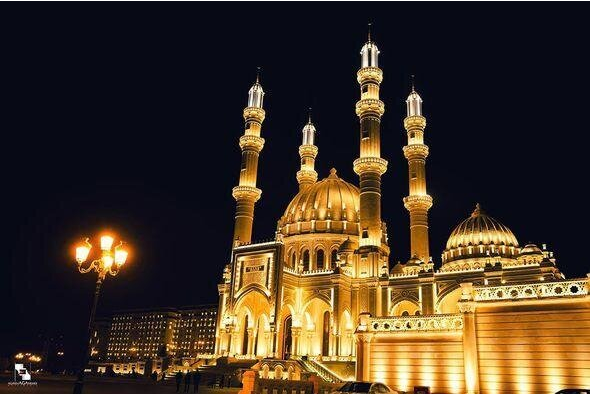Ramadan in Azerbaijan is a deeply spiritual and communal time, observed with a blend of Islamic traditions and local customs. As a predominantly Muslim country with a rich cultural heritage, Azerbaijan embraces Ramadan with devotion, hospitality, and a strong sense of togetherness.
Fasting and Daily Routines
During Ramadan, Azerbaijani Muslims observe sawm (fasting) from sunrise to sunset, refraining from food, drink, and other physical needs as a form of spiritual purification. The pre-dawn meal, known as suhur, usually consists of nutritious foods like dairy products, eggs, and fresh bread to provide energy for the day.
After sunset, the iftar meal begins with dates and water, following the tradition of Prophet Muhammad. Families and friends gather to break their fast with a hearty meal that often includes plov (a flavorful rice dish), dolma (stuffed grape leaves), kebab, and shorba (a traditional soup). Sweets like pakhlava (Azerbaijani baklava) and shekerbura (sweet pastries) are commonly enjoyed with tea.
Buy your Special Day gift from My Fashion World
Religious Observances and Community Spirit
Mosques across Azerbaijan, including the iconic Taza Pir Mosque in Baku, host Taraweeh prayers, where worshippers gather for special nightly prayers. Many Azerbaijanis also engage in reading the Quran, giving charity (zakat and sadaqah), and performing acts of kindness during this holy month.
Community iftars are common, where wealthier individuals and organizations provide meals for those in need. Charity plays a significant role during Ramadan, with people donating food, money, and clothing to the underprivileged.
Buy your Special Day gift from My Fashion World
Eid al-Fitr Celebrations
At the end of Ramadan, Azerbaijan celebrates Eid al-Fitr (Ramazan Bayramı) with great enthusiasm. The day begins with a special prayer at mosques, followed by visits to family graves to pay respects. Homes are filled with delicious food, and people exchange greetings of "Bayramınız mübarək!" (Blessed Holiday!). It is also customary to give gifts, especially to children, and share sweets with neighbors.
Buy your Special Day gift from My Fashion World
Modern Ramadan in Azerbaijan
While traditional values remain strong, Ramadan in Azerbaijan has also adapted to modern life. Social media platforms are used to share Islamic teachings, and many restaurants and cafes offer special iftar menus. Despite the hustle of daily life, Azerbaijanis make time for reflection, prayer, and family gatherings, keeping the essence of Ramadan alive.
In essence, Ramadan in Azerbaijan is not just about fasting but also about strengthening faith, fostering unity, and embracing the values of generosity and compassion that define the holy month.

Comments
Post a Comment